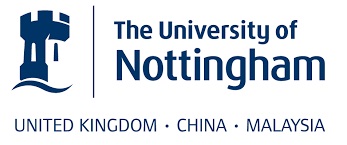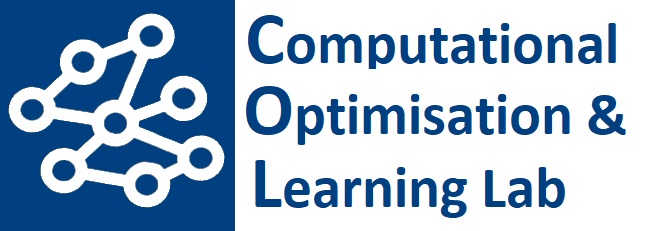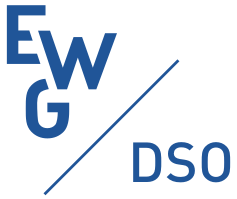| Home | Teaching | Research | Publications | Activities |
|
||||
- Third/Fourth Year Projects [click here]
- MSc Projects [click here]
- optimal design of quantum experiments
- intelligent search methods (particularly hyper-heuristics and evolutionary algorithms) and their application to challenging (preferably real world) problems,
- intelligent user interfaces
- visualisation tools
- intelligent agents for playing games (such as, backgammon, simino), and more.
Third/Fourth Year Project Ideas
Please drop me an email, if you are interested interested in Artificial Intelligence, Operations Research and/or Computer Science projects.-
Project coordination support tool (PESTO)
This project involves in creating and interface and optimisation tools for maintanance and assignment of markers for Y3/Y4 dissertations as well as scheduling end of year project demonstrations without any clashes. - A metaheuristic for solving windfarm layout optimisation problem.
- A hyper-heuristic for online bin packing
The online bin packing problem is a well-known bin packing variant which requires immediate decisions to be made for the placement of a lengthy sequence of arriving items of various sizes one at a time into fixed capacity bins without any overflow. The overall goal is maximising the average bin fullness. Hyper-heuristics are high level search and optimisation methods which explore the space formed by low level heuristics or heuristic components for solving complex problems. This project involves implementation of selection hyper-heuristics and a set of low level heuristics based on a policy matrix representation for solving online bin packing problems. The project builds on a previous work which provides a Java framework. See the following paper for more: http://www.cs.nott.ac.uk/~pszeo/docs/publications/chesc.pdf -
A meta/hyper-heuristic for solving High School timetabling problem.
This project involves in implementing a solver for high school timetabling and this will require joining a newly announced competition. The details can be reached from ITC2011. A meta/hyper-heuristic for solving a timetabling problem (The timetabling problem and the meta/hyper-heuristic to be used as a solver can be decided later. See the competition tracks at ITC2007 - you can pick one problem) - An examination timetabling tool. [Click for the problem definition]
- A post enrolment based course timetabling tool. [Click for the problem definition]
- A curriculum based course timetabling tool. [Click for the problem definition]
- Any recent competition related to artificial intelligence can be used as a basis for a project. For example, ever year GECCO conference series organise mutliple competitions which would make a good project topic. [Click for the GECCO 2016 competitions]: These competitions are all very challenging and if chosen as a project topic, the results could potentially be published as a scientific paper.
- An Intelligent Agent for Playing Game X. This project should involve implementation of AI techniques such as game trees, alpha beta pruning, Monte Carlo search, etc. AND a GUI relevant to the game X (please do name the game your self). I have previously supervised projects implementing intelligent players for Abalone, PacMan, Poker, Backgammon and more.
- Desing your own topic:
Proposals realted to the multiobjective search methods for solving multiobjective problems and continuous optimisation methods, such as evolutionary strategies, particle swarm optimisation and differential evolution are also welcome.[Method X] [Problem Y] for
Please feel free to name X and Y for your self and drop me an email providing me your proposal details. - A multimodal intelligent user interface for drawing trees.
- A multimodal intelligent user interface for drawing graphs.
- A visualisation tool for a Particle Swarm Optimisation System.
- A visualisation tool for a hyper-heuristic.
- A tool for comparing bottom left heuristics for 2D strip packing
- A hyper-heuristic managing crossover
- A tool for lanscape analysis of hyper-heuristics (based on HyFlex - a java hyper-heuristic library)
MSc Project Ideas
My project ideas provided below require implementation of intelligent search methodologies, such as, heuristics, meta-heuristics or hyper-heuristics for solving optimisation problems that belong to the NP hard set. A thorough experimentation over a set of well known problem instances and analysis of results are expected. I have no specific programming language preference. Please send me an email if you are a MSc student and interested in Artificial Intelligence, Operations Research and/or Computer Science projects related to optimisationi to discuss a project idea. You can refer to my publications to see my research interests and see what else might be of interest to you. Please note that I am open to your own project ideas as well. Here are some sample project topics in no specific order:- Automated second marker allocation and demo scheduling
-
Hyper-heuristics/Metaheuristics (e.g., Genetic Programming, Memetic Algorithm, Simulated Annealing) for
- vehicle routing problem
- 0-1 kanpsack problem
- quadratic assignment problem
- A Python-based heuristic optimisation library (implementing selected approaches for solving multi-dimensional knapsack and TSP problems)
- General video game AI competition
- Lanscape analysis of hyper-heuristics
Current Final Year Projects
2021-2022- Jack Cakebread, Improving selection hyper-heuristics based on analyses of their search behaviour using HyVis
- Huanran SA, A software library for visualising and learning search methods
- Khaled Alazem, An Intelligent Mario Game Player
Past Final Year Projects
2020-2021- Joshua Matthew McDonagh, Automated Generation of Classifiers Using Genetic Programming
- Daniel Musselwhite, University Course Timetabling Using Hyper-heuristics
- Scott McCumskay, Gaze Tracked Magnification for Partially Sighted Users
- Pascal Schlatter, A Realistic Instance Generator for the Vehicle Routing Problem
- Theng Han Ong, Training and Evaluating Autonomous Cars in Simulation
- Alexander Steenson, A Sequence-Based Hyper-Heuristic Approach for Educational Timetabling (ITC2007)
- Can Yetismis, Selection-Based HyperHeuristics for Wind Farm Layout Optimisation Problem
- Benjamin Charlton, Cross-Game Generalisation Approaches for General Video Game Playing using Deep Reinforcement Learning
- Rahul Soni, A Metaheuristic approach to optimal design of Quantum Experiments
- Samuel Copping, PESTO: A Project Coordination Support Tool
- Alexander Steenson, A Resource Allocation Tool for Project Coordination
- Abdul Majeed Abdul, Machine Learning Methods to accelerate Hill Climbing for online bin packing
- Jiacheng He, Windfarm layout optimization based on surrogate models
- Ruizhe Li, An Intelligent Driver for Grand Theft Auto V
- Samuel Copping, Simulation of a Self-Driving Car
- Valentinas Salmanovicius, Memetic Algorithms for Windfarm Layout Optimisation
- Harry Bland, Selection Hyper-heuristics for Online Bin Packing
- Mark William Attenborough, An Intelligent PacMan Player
- Craig Duffin, A Poker Game Featuring an Intelligent Agent Opponent
- Alastair Kerr, Intelligent Agent for Open Face Chinese Poker Web-Application
- Craig Liddle, Creating an Intelligent Agent for Ms. Pac-Man
- Ryan Lobo, Data Centre Manager Tool
- Alexander Dransfield, Online Bin Packing Visualiser and Policy Matrix Generator
- Konstantinos Yiannatsos, Implementation and Cooperative Analysis of two Frameworks used for Solving High School Timetabling
- Michael Taylor, Wind Farm Layout Optimisation
- W. Jackson, E. Özcan and J. H. Drake, Late Acceptance-based Selection Hyper-heuristics for Cross-domain Heuristic Search, The 13th Annual Workshop on Computational Intelligence (UKCI), pp. 228-235, 2013. [PDF]
| Name | Project | Meeting time | ||||
|---|---|---|---|---|---|---|
| Warren Jackson psywj1 att nottingham.ac.uk | Late Acceptance based Hyper-heuristics for Cross Domain
Heuristic Search | Tuesday, 13:30 | ||||
| Kenneth Bautista psykb att nottingham.ac.uk | Selection Hyper-heuristics for Nurse Rostering | Monday, 14:30 | ||||
| Alexander Sokolov pmyas att nottingham.ac.uk | Toolpath Generation | Monday, 15:00 | ||||
| Alexander Hutchon evydah att nottingham.ac.uk | An Intelligent Pac-Man Player | Monday, 15:30 | ||||
| Roland Thiolliere psyrt4 att nottingham.ac.uk | Mixing Heuristics for Cross Domain Heuristic Search | Monday, 16:00 |
| Name | Project | Meeting time | ||||
|---|---|---|---|---|---|---|
| Victor Ogana psydvco att nottingham.ac.uk | AMORE - A Movie Recommendation Tool | Monday, 11:00 | ||||
| Matthew Pendleton psydmp1 att nottingham.ac.uk | A Pacman Player | Monday, 15:00 | ||||
| Krasimir Petrov psycrkp att nottingham.ac.uk | A Tool for Fitness Landscape Analysis of Hyperheuristics | Monday, 16:00 | ||||
| Yifan Zhang psyyz1 att nottingham.ac.uk | Selection Hyperheuristics for Nurse Rostering | Tuesday, 14:00 | ||||
| Chaoqun Feng psycf att nottingham.ac.uk | Investigating Mechanisms to Enable Crossover in
Selection
Hyperheuristics | Tuesday, 14:30 | ||||
| James Gregory | Improving a Multi-agent AI System: MS Pac-Man Ghosts | - |
- We produced an academic paper with Nikolaos Kililis based on his studies which is accepted for presentation at EuroGP 2013: Drake, J.H., Kililis, N., Özcan, E. Generation of VNS components with grammatical evolution for vehicle routing (2013) Lecture Notes in Computer Science (including subseries Lecture Notes in Artificial Intelligence and Lecture Notes in Bioinformatics), 7831 LNCS, pp. 25-36. [see the news]
- The study by Viral Shah is accepted for presentation at PATAT 2012 and it is published as an abstract: E. Özcan, A. Elhag, V. Shah, A study of hyper-heuristics for examination timetabling, extended abstract, pp. 410-414, PATAT 2012.
| Name | Project | Meeting time | ||||
|---|---|---|---|---|---|---|
| Nikolaos Kililis psydnk1 att nottingham.ac.uk | A Generational Hyper-heuristic for Vehicle Routing | Thursday, 10:00 | ||||
| Bulei Chi psydbc att nottingham.ac.uk | A visualisation tool for Evolutionary Strategies | Thursday, 13:00 | ||||
| Shenghui Qiu psydsq att nottingham.ac.uk | A verifier and a visualiser for 2D strip packing | Thursday, 13:15 | ||||
| Viral Rashmi Meghji Shah payavrms att nottingham.ac.uk | Hyper-heuristics for timetabling | Thursday, 13:30 | ||||
| Kai Zhang kxz09u att Cs.Nott.AC.UK | Efficient implementation of bidirectional best fit algorithm for orthogonal rectangular strip packing |
Thursday, 15:30 | ||||
| Nikolai Batchvarov nxb07u att Cs.Nott.AC.UK | A genetic algorithm for orthogonal rectangular strip packing | Thursday, 15:45 | ||||
| Apar Pasricha axp18u att Cs.Nott.AC.UK | Hyper-heuristics for orthogonal rectangular strip packing | Thursday, 16:00 |
Jonathon Gibbs's study is accepted for poster presentation and inclusion in the PPSN 2010 proceedings.
[see the news]
This work also won the IBM Individual Project Prize.
[see the news]
- J. Gibbs, G. Kendall and E. Özcan, Scheduling English Football Fixtures over the Holiday Period Using Hyper-heuristics, 11th International Conference on Parallel Problem Solving From Nature, Lecture Notes in Computer Science, Volume 6238, pp. 496-505, 2010. [PDF]
| Name | Project | Meeting time | ||||
|---|---|---|---|---|---|---|
| Michael Philip Rooney mpr07u att Cs.Nott.AC.UK | An online verifier for the orthogonal rectangular strip packing solvers | Wednesday, 15:00 | ||||
| Nikolai Batchvarov nxb07u att Cs.Nott.AC.UK | A genetic algorithm for orthogonal rectangular strip packing | Wednesday, 15:15 | ||||
| Kewei (Terry) Zhou psycrkz att nottingham.ac.uk | Online Abalone Player | Wednesday, 15:30 | ||||
| Fengmin (Edwin) Xia psycrfx att nottingham.ac.uk | Heuristics for orthogonal rectangular strip packing | Wednesday, 15:45 | ||||
| Apar Pasricha axp18u att Cs.Nott.AC.UK | Hyper-heuristics for orthogonal rectangular strip packing | Wednesday, 16:00 | ||||
| Jonathon Gibbs psyajg att nottingham.ac.uk | Hyper-heuristics for solving a football fixture scheduling problem | Wednesday, 16:15 | ||||
| Dean Bowler daeneth att gmail.com | An Alife Simulator | Wednesday, 16:30 |
Title: Departmental Course Timetabling Tool
Content:
Timetabling is a difficult constraint scheduling problem to deal with. This project requires a survey on the approaches used for solving course timetabling problems. The related community has many benefits from high quality solutions, requiring feasible assignment of time-slots to a set of events, subject to a set of constraints. A user-interface and a problem solver are to be developed for course timetabling problem in our department.SW: Java
This tool ranked the first in a graduate project competition.
Paper: E. Ozcan, M. Kalender, E. K. Burke, A Greedy-Gradient - Simulated Annealing Hyper-heuristic, Workshop on Hyper-heuristics (in PPSN X), 2008.Title: A musical expert - AMUSE
Content:
Researchers have not studied composition of music as frequent as music perception. This study involves in the implementation of a tool for automatic composition of music based on evolutionary computation. User will be allowed to determine the emotion suggested by the music to be generated. Output should be provided in midi format.
SW: Java
Paper: Ender Ozcan, Turker Ercal, A Genetic Algorithm for Generating Improvised Music, LNCS 4926, revised and selected papers, EA 2007, pp. 266 - 277, 2008.
Title: Final Exam Scheduler
Content:
Finding the best timetable assignments for the final exams in our faculty, based on some constraints is a hard problem. A tool named FES is to be developped for solving this problem utilizing an Evolutionary Algorithm, a population based algorithm. Input to the software will contain the student lists taking each course, the list of courses and corresponding lecturers, assistant list to be scheduled for each final exam, and the constraints. Constraint types supported will include presets, excludes, edge and event-spread ones.
SW: Java
Paper: E. Ozcan, E. Ersoy, Final Exam Scheduler - FES, Proc. of 2005 IEEE Congress on Evolutionary Computation, vol. 2, pp 1356-1363, September 2005.
Title: A Sketch Recognizer for Graphs
Content:
Gesture-based interfaces offer an alternative to traditional keyboard, menu, and direct manipulation interfaces. Unfortunatey, gesture-based interfaces have not been extensively researched, partly because they are difficult to create. A sketch recognition system is to be designed and implemented for recognizing graphs (weighted, unweighted). Additionally, a tool that allows visualization of some selected graph algorithms will be embedded to the sketch recognizer.
SW: C
Paper: Hamdi Dibeklioglu, Metin Sezgin, Ender Ozcan, A Recognizer for Free-Hand Graph Drawings, In Proc. of the International Workshop on Pen-Based Learning Technologies, Catania, Italy, May 24-25 2007.
Title: Classroom Assignment Tool
Content:
A very simple interface will be implemented that will be used to assign classrooms automatically for course meetings subject to a set of constraints for the university. A number of contructive heuristics and hyperheuristics will be tested over a set of real data.
SW: Java
Title:Image Generator based on Evolutionary Art
Content:
The main Evolutionary Art concept is using evolutionary computation to evolve images based on their aesthetics. The origins of this can be traced backed to Richard Dawkin's book, "The Blind Watchmaker", in which he introduced Biomorphs. These ideas influenced the famous and impressive work by Karl Sims, William Latham and more recently Steven Rooke. Unlike the majority of evolutionary computation the fitness function (at least in the majority of the cases) is provided by a user who picks their 'favourite' individuals for reproduction. Means to get rid of human intervention for fitness evaluation, selection for reproduction will be investigated.
SW: C/C++
Title: Abalone Player
Content:
Abalone is a two-person strategy game. Two-player, strategy game Abalone was invented in 1990 by Laurent Levi and Michel Lalet. Abalone is introduced as "never alone" game, since the prefix "ab" means "never". Hence, it is suggested that its own name summarizes the main strategy required: "winning against loneliness". The concept of the game is based on the popular Japanese Sumo wrestling. The board is a hexagonal field representing the Sumo arena. This project involves in programming an intelligent agent that will act as an opponent. Developing an intelligent agent requires development of heuristics and application of AI techniques.
SW: C++
Paper: E. Ozcan, and B. Hulagu, A Simple Intelligent Agent for Playing Abalone Game: ABLA, Proc. of the 13th Turkish Symposium on Artificial Intelligence and Neural Networks, pp. 281-290, June 2004.
Title: Internet Based Conference Manager (I-CON)
Content:
This project involves in the analysis, design and implementation of a dynamic system to maintain multiple conferences over the Internet. Multiple chairs, tutorials and workshops as a part of a conference, different main areas, subareas, submission of papers and reviews will be supported.
SW: PhP, MySQL, Javascript
Title: Generating an Object Oriented Program Using a Natural Language Interface (GO-NALAN)
Content:
This project requires implementation of an agent capable of processing a knowledge database based on ISA hierarchy and schemata representing the classes and their members of an object oriented design. Furthermore, the agent will be capable of representing, producing, manipulating and querying a whole program in a selected object oriented programming language using natural language as input.
SW: Prolog, Java, C++
Paper: E. Ozcan, Ş. E. Şeker, Z. İ. Karadeniz, Generating Java Class Skeleton Using A Natural Language Interface, Proc. of the 1st International Workshop on Natural Language Understanding and Cognitive Science, NLUCS - 2004, In conjunction with ICEIS 2004, pp. 126-134, April 2004.








